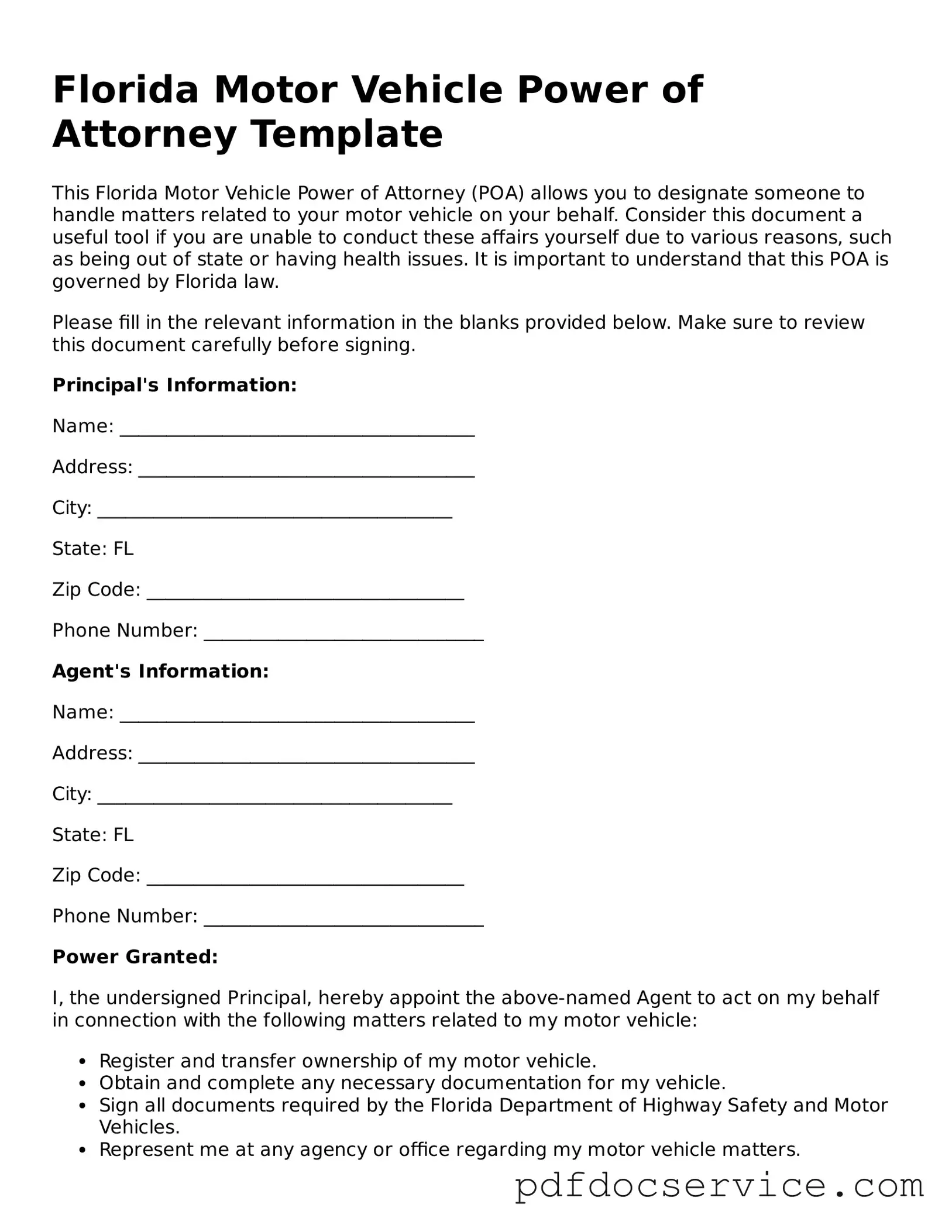Printable Motor Vehicle Power of Attorney Template for Florida
The Florida Motor Vehicle Power of Attorney form is a legal document that allows one person to authorize another to act on their behalf regarding motor vehicle transactions. This form is essential for individuals who may be unable to handle their vehicle-related matters due to various reasons, such as being out of state or having health constraints. By using this form, a principal can grant specific powers to an agent, ensuring that their vehicle affairs are managed effectively.
Open Motor Vehicle Power of Attorney Editor

Printable Motor Vehicle Power of Attorney Template for Florida
Open Motor Vehicle Power of Attorney Editor

Open Motor Vehicle Power of Attorney Editor
or
Get Motor Vehicle Power of Attorney PDF
Finish the form now and be done
Finish Motor Vehicle Power of Attorney online using simple edit, save, and download steps.